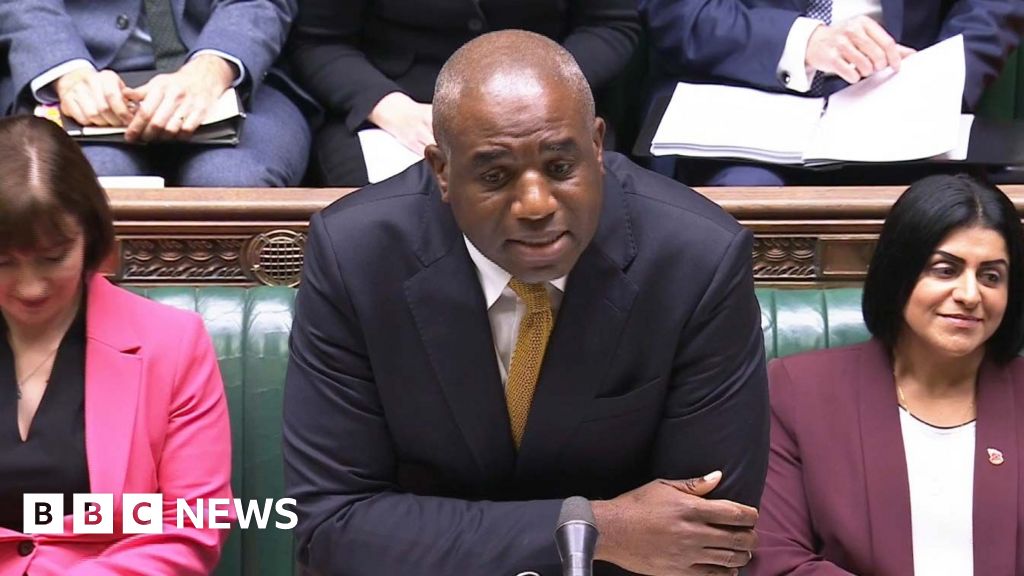Last week, after a migrant sex offender was mistakenly released from prison, Justice Secretary David Lammy said he was implementing the “strongest release checks that have ever been in place”.
However, since then, details have emerged of two more prisoners being wrongly let out.
It is always perilous for a government when it clearly lacks grip on an issue voters would reasonably expect it to be in control of.
The stand out example of this in recent years has been the arrival of migrants on small boats.
From Rishi Sunak’s promise to “stop the boats” to Sir Keir Starmer’s promise to “smash the gangs” both have been found wanting and the problem remains huge.
Now the government confronts another example: a justice system that is palpably, transparently and repeatedly failing – and where measures designed to address the issue of letting prisoners out by accident aren’t working.
According to government figures published in July, 262 prisoners were released in error in the year to March of this year – a 128% increase on 115 in the previous 12 months.
In other words, it has been a problem for some time, and it is getting worse.
And, context is everything in politics: this row now comes after the mistaken release of perhaps the most high-profile prisoner jailed this year.
Hadush Kebatu, who arrived in the UK on a small boat, was jailed after sexually assaulting a 14-year-old girl and a woman while living in an asylum hotel in Epping in Essex, only to be let out by accident. He has since been deported.
It gave the issue of accidental releases from prison a salience and prominence it hadn’t had until then.
Once again, we are seeing ministers use the language we usually see from opposition politicians.
The Home Secretary Shabana Mahmood has described the number of people arriving on small boats as “shameful”.
Now, the Deputy Prime Minister and Justice Secretary David Lammy is saying he is “absolutely outraged” over the mistaken release a week ago of Brahim Kaddour-Cherif, a 24-year-old Algerian sex offender.
Lammy added that his officials have been “working through the night to take him back to prison.”
Which brings us to the messy genesis of this saga, at B-Team Prime Minister’s Question Time on Wednesday lunchtime.
With the prime minister at the COP climate summit in Brazil, it was his deputy who was answering questions.
The Conservatives put up the shadow defence secretary James Cartlidge, who repeated a question, using a very particular form of words, over and over again.
He wanted to know if an “asylum-seeking offender had been accidentally released from prison”.
It was obvious from the Press Gallery that Cartlidge was on to something – because of the apparent precision of his language and his constant repetition of the question.
But Lammy chose to repeatedly duck the question, despite, we later learnt, knowing about the case Cartlidge was referring to.
So why didn’t he address it?
It turns out Cartlidge had got his facts wrong – Kaddour-Cherif isn’t an asylum seeker. He arrived here legally but then stayed after his visa expired.
Lammy wasn’t certain on entering the chamber whether he was an asylum seeker or not.
So setting out what he knew might also have exposed what he didn’t.
His team insist “it is incredibly important to know the facts” and they argue it was for the police in the first instance to do that publicly.
Really? It seems reasonable to ask both whether Lammy could or should have known more when he arrived in the chamber and whether he could or should have disclosed more when he was there.
The Conservatives later called for him to return to the Commons to set out what he knew. The former Tory leader Sir Iain Duncan Smith suggested he may have misled the Commons. The Liberal Democrats and Reform have been very critical too.
Some also suggest Lammy’s manner – shouting “get a grip, man!” at Cartlidge, among other things – was a mistake.
Could he instead have chosen to set out what he did and didn’t know about the case at the beginning of the exchanges, before he took any questions?
But it is the bigger picture here that really matters: the justice system is currently repeatedly failing in that most basic of its tasks – who should be in prison and who shouldn’t.
The reasons for that are complex – with difficult questions for the courts, individual prisons, the Prison Service, the Ministry of Justice and the Home Office.
It is not a new problem, but it is a growing one, and one the government doesn’t have a grip on. And that, if you are the justice secretary, is a problem.
to keep up with the inner workings of Westminster and beyond.
Source: www.bbc.com
